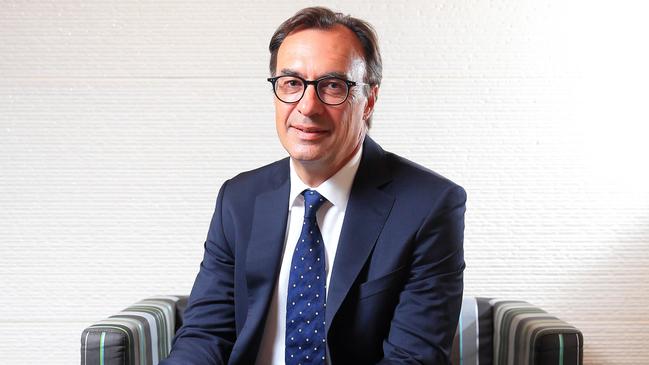Reserve Bank rate cuts won’t help: AFIC boss
The head of the country’s largest listed investment company believes an RBA cash rate cut will do little to steady markets.

The head of the country’s largest listed investment company believes a cash rate cut this week will do little to steady markets spooked by the coronavirus as he reveals he’s been topping up his positions in companies that have been battered in the market’s more-than-10 per cent rout.
The Reserve Bank is widely expected to cut the official cash rate to a record low 0.5 per cent on Tuesday in a bid to stabilise markets and boost the local economy following a horrific bushfire season and the emergence of the deadly virus.
But another rate cut is unlikely to deliver the desired effect because rates are already at such low levels, according to Australian Financial Investment Company managing director Mark Freeman.
“I’m in the camp that says rates are so low, (a rate cut) is not going to have much of an impact anyway. And from a currency perspective, the Australian dollar is already weak; there’s no need to cut rates,” Mr Freeman said.
“I think rates are now so low that people no longer make decisions based on a small cut.”
Markets have fully priced in a rate cut this week after US Federal Reserve chairman Jerome Powell on Friday issued an emergency statement indicating that the central bank was prepared to slash interest rates if the economic outlook deteriorated. The Fed is now tipped to slash US rates by 50 basis points when it meets on March 17-18.
Mr Freeman also questioned the value of quantitative easing, which is another tool the market increasingly believes the RBA will use in the coming months.
“I’m just not sure what QE has really added. It’s certainly put central banks in a difficult position: how do you manage your way out of that? It creates asset price inflation but what do you actually really get out of QE?” he said.
Mr Freeman’s comments came as the local sharemarket recovered some of its losses on Monday, bouncing from an intraday low of 2.9 per cent to be down 0.77 per cent at the market close. All up, 11 per cent of the market’s value has been wiped off the index since February 24. During that time, Mr Freeman said he had seen a number of “opportunities” pop up.
“A month ago, we were struggling to find value. There were plenty of good companies (out there), but we just weren’t really seeing the value (at that time).
“Taking a longer-term view, we’re starting to see some interesting prices in the market for quality companies,” he said.
While “nibbling away” at a number of stocks, Mr Freeman said he had not added more of CSL to the portfolio, simply because its share price hadn’t fallen far enough. The $7bn AFIC last invested in the biotech market darling when it was in the low to mid $200s, he said, compared to its present $300-plus price.
It was not only fear in the market that was driving the widespread correction, but also the amount of money in index funds, he suggested.
“When people say they want to get out, there’s so much money in index funds and the index funds have to then just sell everything. It doesn’t matter whether they’re defensive or not,” Mr Freeman remarked.
The value investor said he was more comfortable investing in the market at the current level because of the “interesting opportunities” it threw up.
AFIC has for some time been transitioning away from financials and reducing the number of companies in its portfolio to focus on quality businesses with a competitive advantage.
Over the past four years, it has cut its major bank exposure from 28 per cent to 19 per cent of the portfolio, while also reducing its relative exposure to resource companies and disposing of holdings that didn’t have a sustainable competitive advantage.
It doesn’t hold any airlines or tourism stocks, but does have a holding in Sydney Airport.
“It’s obviously going to feel some pain over the next period but historically it does recover very strongly once these concerns pass,” Mr Freeman said.
The local market closed down 0.77 per cent at 6391.5 on Monday after earlier falling to as low as 6245.2.



To join the conversation, please log in. Don't have an account? Register
Join the conversation, you are commenting as Logout